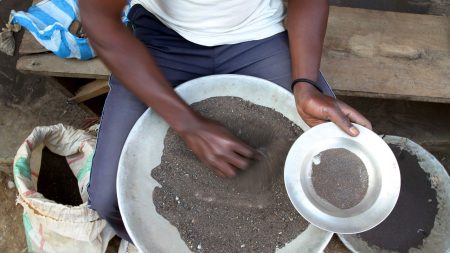The European Space Agency (ESA) recently graduated five new astronauts from basic training, adding them to its astronaut corps eligible for missions to the International Space Station. The new astronauts underwent a rigorous training program that included exposure to various extreme conditions such as centrifuge spin, underwater simulations, and oxygen deprivation. They also studied a wide range of subjects including physiology, anatomy, astronomy, meteorology, robotics, and Russian language. The ESA currently has a total of 11 astronauts eligible for space missions, with negotiations ongoing with NASA for participation in future Artemis moon missions.
The selection process for the new astronaut class was highly competitive, with only five individuals chosen from a pool of 22,500 applicants. The chosen candidates have impressive backgrounds with advanced scientific and medical degrees, military experience, and expertise in various physical activities such as flying planes, helicopters, and water sports. Despite their diverse backgrounds, the group formed a close-knit team with a strong sense of camaraderie. The new astronauts are prepared to support ongoing space missions and contribute to the advancement of space exploration.
One of the new astronauts, Sophie Adenot, shared her excitement about the training experience and the prospect of venturing into space in the near future. She expressed gratitude for the opportunity to pursue her childhood dream of becoming an astronaut, despite facing skepticism from others who doubted her aspirations. Adenot emphasized the importance of believing in oneself and encouraged others to pursue their goals with determination and perseverance. The rest of the new astronaut class consists of individuals from Spain, Britain, Belgium, and Switzerland, each bringing their unique expertise and skills to the team.
The yearlong basic training for the new astronauts involved a combination of physical, academic, and practical exercises to prepare them for the challenges of space travel. They learned how to recognize and respond to symptoms of hypoxia, survival techniques for potential emergency situations, and how to operate in a zero-gravity environment. Additionally, the astronauts received instruction on the scientific aspects of space missions, including familiarization with the space station’s modules and equipment. The training also included intensive Russian language instruction, as fluency in Russian is necessary for communication on the International Space Station.
The ESA’s collaboration with NASA and other space agencies plays a crucial role in enabling astronauts to travel to space and conduct research onboard the International Space Station. The agency is currently supplying the service module for the Orion crew capsule and has negotiated for three spots on future Artemis moon missions. While the more senior astronauts are likely to be selected for these missions, the new astronaut class remains committed to supporting ongoing space endeavors and contributing to the advancement of human space exploration. The graduates are eager to embark on their future missions and make valuable contributions to the field of space exploration.
















